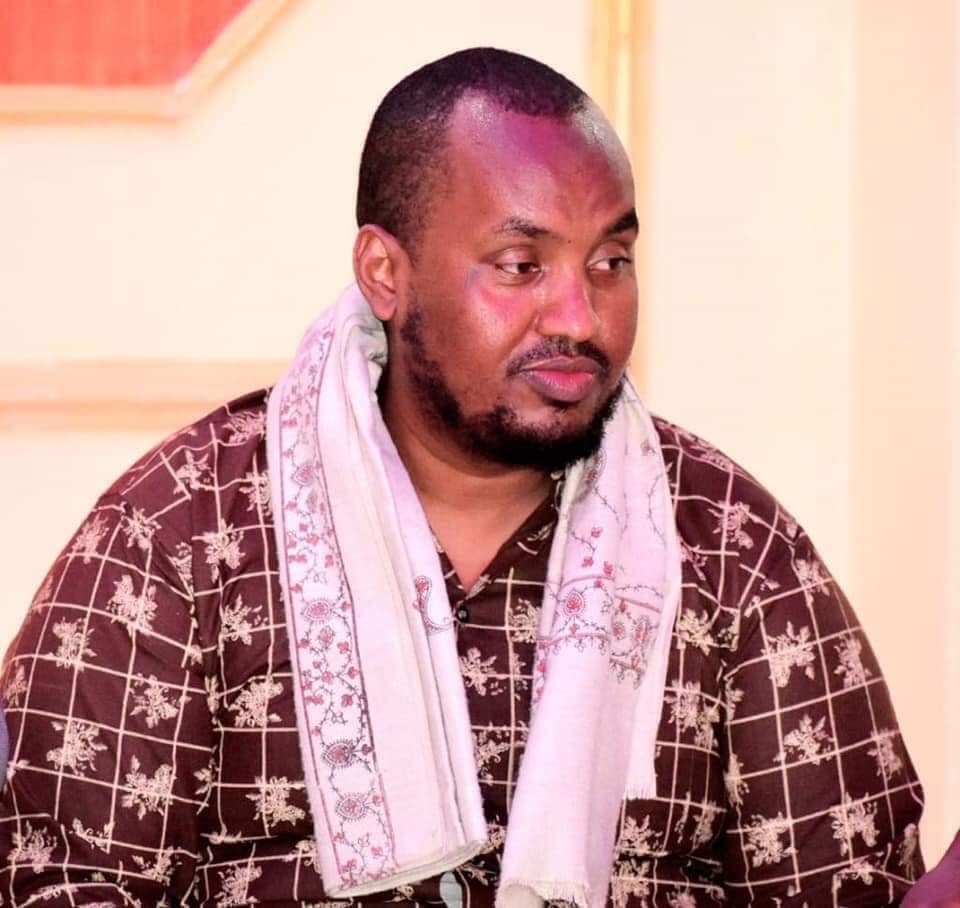
From militia commander to power player in Somalia: The rise of Liibaan Shuluq
|
19 December 2023 23:18

NAIROBI (HORN OBSERVER) – In the turbulent landscape of Somalia, where violence and lawlessness reign, a familiar face takes on a new role.
Liibaan Ahmed Hassan, widely known as 'Shuluq', a moniker attributed to his corpulent physique, has transcended his roots as a militia commander to become a key player in military logistics, navigating the complex web of profit and power.
Appointed by President Hassan Sheikh Mohamud, Liibaan Shuluq now holds a critical position overseeing military logistics in the central Somalia region of Galmudug. His responsibilities include supplying fuel, food, vehicle spare parts, and ammunition to clan militias and regional forces battling against Al-Shabaab.
"This is a huge project with a lot of profit. Millions of dollars,” reveals one of Liibaan Shuluq’s associates, Abdi Mohamud.
His journey to this influential role is marked by a trail of controversy and political maneuvering. Liibaan Shuluq’s history is explored through conversations with former colleagues, security officials, and members of civil society in Galmudug and Mogadishu.
Rising to prominence by forming a formidable militia in Galkayo South, Liibaan Shuluq’s influence soon extended to the political arena in the capital, Mogadishu. According to Abdirashid Abdulle, a timely decision to intertwine security with politics was crucial for survival in the unpredictable business of conflict and violence.
"Galkayo is the battleground where the Hawiye-dominated South and the majority-Daarood North clans clash, and having your own security is essential. Once you control security, politics becomes the next step,” Abdulle explains.
Galkayo, situated in the contested Mudug region, has long been a focal point for rival clans, hindering stability in the country. Liibaan Shuluq’s militia played a pivotal role in the conflicts between the Hawiye and Daarood clans.
During a conflict in October 2016, a skirmish compelled a minimum of 75,000 individuals, including residents of displacement camps, to evacuate Galkayo, as reported by the United Nations. Human Rights Watch echoed the sentiment, stating, "Galkayo is emptying out,” emphasizing the dire consequences of the fighting.
In October 2017, following the arrest of Liibaan Shuluq by Adado authorities, the swift response from then-lawmaker Ahmed Moalim Fiqi underscored a call for his release.
"I am adding my voice to those demanding the release of Liiban Ahmed Hassan (Liiban Shuluq), who was arrested yesterday afternoon in Adado prison,” stated Ahmed Mo’alim Fiqi, the current Minister of Interior and Federal Affairs of the Somali Federal Government, in a declaration on October 10, 2017, posted on his Facebook page.
While the cause of the arrest remains unclear, media reports suggested that Adado authorities seized $500,000 from Liiban’s bag.
Layer of influence
Even as the battles displaced tens of thousands, Liibaan Shuluq’s political trajectory continued. In July 2021, he secured a position in the Federal Electoral Implementation Team (FEIT), with a controversial backing from Prime Minister Mohamed Hussein Roble, his clansman.
Goobjooge news online reported on the matter, stating, "Liibaan received support from Prime Minister Mohamed Hussein Roble, Galmudug President Ahmed Abdi Kariye, and candidate Abdi Karin Hussein Guled,” in an article published on July 4, 2021.
Critics, including women activist Habibo Adan, denounced the appointment, citing a disregard for civil society concerns. The partnership between Liibaan Shuluq and Prime Minister Roble, however, had a concealed aspect related to the khat trade dispute between Somalia and Kenya.
Somalia had upheld a prohibition on Kenyan khat (a leafy green stimulant), sparking tensions between the two nations.
Following discussions in Mombasa in August 2021, Prime Minister Roble and President Uhuru Kenyatta resolved the khat trade issue. Liibaan Shuluq subsequently led the committee formalizing khat importation contracts with Kenya, adding another layer to his influence.
As the ban on Kenyan khat was lifted in June 2022 — following the election of President Hassan Sheikh Mohamud, a ally of Roble—, the lucrative khat trade became a source of wealth for Liibaan Shuluq and his political associates. The committee charges importers $4 to $5 per kilo, contributing to an industry that accounted for a significant portion of Kenya’s exports to Somalia.
The proceeds from these charges are distributed among a cadre of politicians, including former Prime Minister Mohamed Hussein Roble, Deputy Minister of Information Abdirahman Yusuf Al-Adaala, and businessmen, including relatives of President Mohamud, according to a khat importer source.
Yet, beyond business dealings, it is Liibaan Shuluq’s involvement in military logistics contracts funded by foreign governments aimed at combating terrorism that raises ethical concerns.
For some, including victims of the conflicts he participated in, his actions represent the stark reality of impunity and corruption at the highest echelons.
But behind every villain lies a broken heart. And behind the facade of Liibaan Shuluq’s story unveils a trail of broken hearts and a nation grappling with the complex intersection of power, profit, and governance.
Leave a comment
- Popular
- Rated
- Commented
04/11/2021 - 11:05:02
28/05/2024 - 15:44:10
02/12/2021 - 11:34:53
01/03/2021 - 09:00:37
Opinions
18/05/2025 - 16:26:37
15/05/2025 - 20:16:04
Politics
05/06/2025 - 13:42:50
Terror Watch
Press Releases
05/06/2025 - 12:21:21
02/06/2025 - 21:29:33
 0
0 




































From militia commander to power player in Somalia: The rise of Liibaan Shuluq
NAIROBI (HORN OBSERVER) – In the turbulent landscape of Somalia, where violence and lawlessness reign, a familiar face takes on a new role.